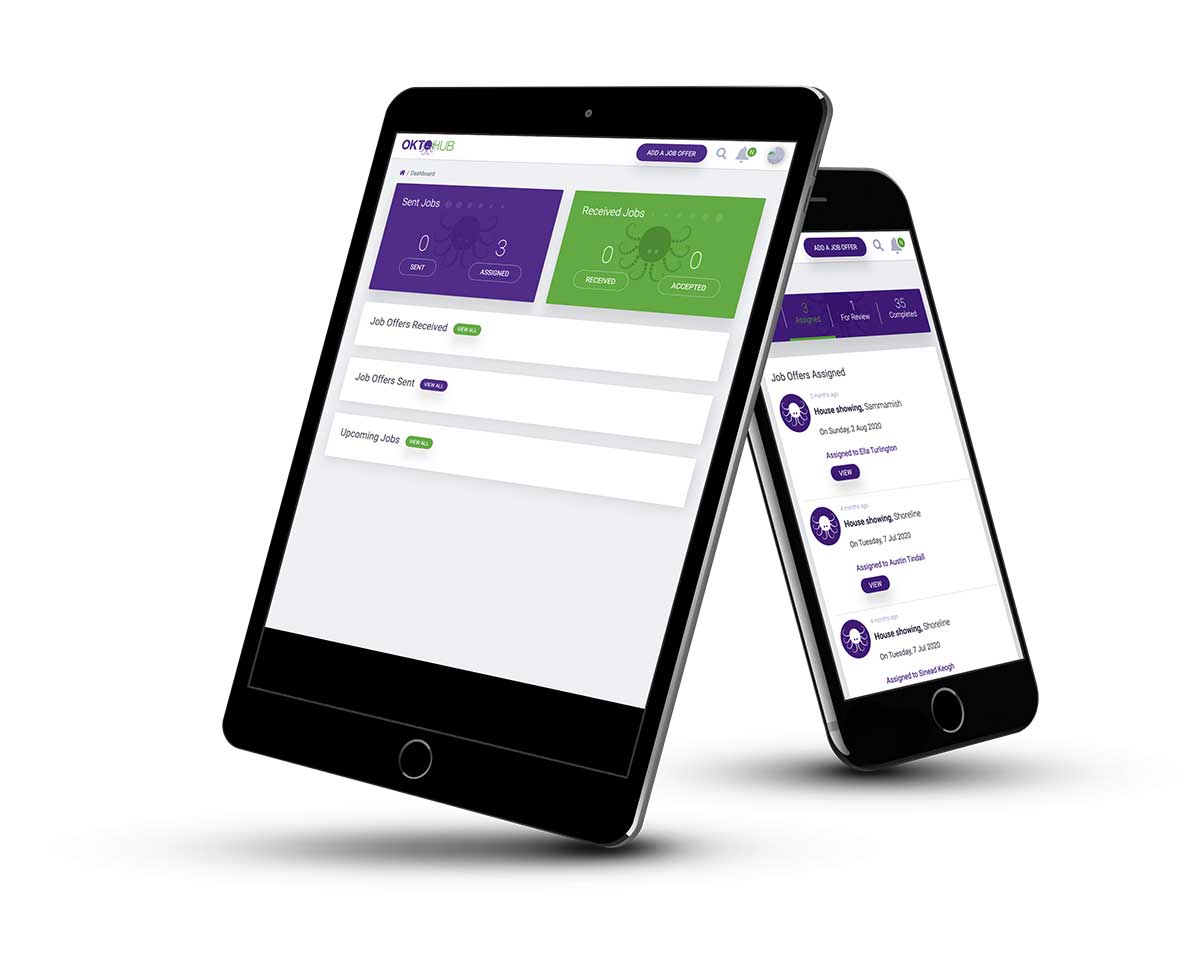Employment trends and statistics suggest that the gig economy is slowly growing into a strong alternative for payroll employees. According to a recent academic journal, the number of people looking for jobs in the gig economy has grown by 27 percent more than the number of people searching for opportunities in payroll employment.
While the gig economy is becoming a potent force across all areas and industries of the United States, certain industries and cities are in the firing range. Early adopter cities like California, Nashville and Austin have seen major changes in employment statistics, with employees and workers preferring a shift toward jobs in the gig economy.
Similarly, when we look at industries, ground transportation and real estate industries have benefited more from gig or temp workers than other industries. For instance, the ground transportation industry alone has seen a 44 percent more increase in gig employees in comparison to traditional payroll employees.
What Is the Gig Economy?
Before we continue with this article, let us first chalk up your understanding of the gig economy. To people who’re unaware of how it works, a gig economy incorporates a non-traditional workplace arrangement, through which independent workers are available to companies on temporary or freelance contracts. These contracts are established for either project-based services or on-demand work during peak seasons.
For instance, a realtor can hire a temporary gig worker to manage work during peak selling seasons. Obviously, once the peak season is over and the real estate market has fairly bubbled down, these workers will no longer be required and the temporary arrangement will be subsequently called off.
Benefits of the Gig Economy for Real Estate Agents
Real estate agents can benefit in a number of ways from temporary employees or gig workers. These benefits include:
Different Functions
A gig employee or temporary worker can serve multiple purposes for a real estate agent without working under a strict title or a limited job description. Employees in the gig economy are hired based on their skills and are given a number of functions that they can perform with that skill set.
Employers in the real estate industry use temporary or gig workers to fill in for absent employees, to come in during peak seasons and to also provide temporary labor for indefinite periods. For instance, a real estate agent hires a gig employee good at graphic designing and with experience in customer management. They can use the skills of this employee to have them perform visitation and also create some brochures for the business or the properties on sale. Hence, they’re able to extract different functions from them, without overwhelming them in any way.
Cost Savings
Most real estate agents today operate from commission to commission and don’t have the resources or the budget to extensively train an employee and afford the benefits that they would require. With a gig employee, you can compromise on the benefits you offer and make a more short-lived contract, without the nitty-gritties of a long term commitment.
While realtors still have to pay overtime pay and worker’s compensation to gig employees, they can save a lot of money on retirement security benefits, sick pay, vacations, dental benefits and medical benefits. These are all benefits and perks that they would otherwise have to pay for when it comes to a permanent worker. Additionally, the recruiting and hiring process is less extensive, which is why businesses can save money that they would have otherwise spent on hiring a more permanent employee. The pay offered to gig employees is the source of attraction to these workers, as it is more lucrative than full term dedicated employment would offer.
Sourcing Talent
On the job training is an important part of HR today. Companies, including realtors, are coming up with ways to provide training on the job without messing up their routines. The gig economy can prove beneficial for real estate agents, as they no longer have to hire established individuals with the risk that a full time employee possesses.
They can now hire a temp worker and work with them to see their aptitude and the skill set that they carry. In the meantime, the worker can also be trained on some of the requisites they should acquire for working with you. When the temporary arrangement comes to an end, you can consider how it went and decide whether it is convenient to hire the worker full-time, knowing their aptitude and skill set fully well.
No Training Costs
Hiring a full time worker requires extensive training and development. When you hire an individual in your real estate business, you have to make sure that they are in line with the values you carry and their skill set is polished to match the requirements of the business.
However, if the hiring is on a gig basis or on a temporary basis, you can let them straight to work without wasting a ton of money on training and development. Certain businesses also invest a significant amount of money on making employees ready for managerial roles in the future. This holds true only for full-time employees, as temp workers will not be part of your long term plans.
There are other recruitment and hiring costs that you can save as well, such as interviewing, advertising the job position and on-boarding. All this money saved can be invested in more appropriate areas within your business.
Handling Major Projects
You just roped in a contract to sell that special property in a hotspot area and want to do your best to impress other sellers and form connections where they matter. Now is the time to have an assistant by your side, so that nothing goes wrong and you’re smoothly able to build an impression in the eyes of future customers.
A temp or gig worker can come in handy if you need an assistant or an extra worker to aid you with special projects. Special projects require more attention up front, which you cannot possibly provide by yourself. Hence, it is necessary that you hire a temp worker to aid you in the recruitment process for peak periods and special projects.
If you search at the right place, you might end up finding someone just as skilled as you want.
Change on the Horizon
The real estate market and all industries in general are going through a positive time of change and improvement. Having temp workers from the gig economy available to them without any serious commitment can be a massive upgrade to payroll employees.
Additionally, there are tasks such as website creation, special project management and peak season management which require a worker for a limited period of time. The gig employee can come in handy for employers and realtors here as it saves them the commitment of major investment in a full time employee.
You can find a reliable real estate temp assistant from a number of platforms online. However, none can be as reliable and smooth as OktoHub. We help you connect with established real estate agents in your area and form a long term commitment with them.


